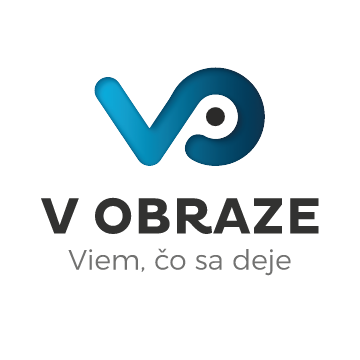Cultural and social life in the village is a diverse range of celebrations and social events. It interweaves the customs and holidays of the traditional and ecclesiastical calendars (Carnival, May Sunday, Maya, Corpus Christi, Easter, Christmas) with modern occasions (Mother's Day, Juniáles, Month of Respect for the Elderly). Several village folklore groups and art circles are involved in the restoration and preservation of folk traditions, as well as the maintenance of newer holidays, in cooperation with the local Municipal Office, which supports and covers cultural events.
We first present the files separately. However, at the events of the village's cultural year, they can be seen and heard singing, making music, dancing and entertaining the village and themselves. Their activities in the village pulsate more dynamically during the holidays, life becomes more sensitive and when restoring archaic customs it breathes a unique and unrepeatable atmosphere. Her survival pulls a person out of the merry-go-round, emotionally enriches his life, as well as binds the community.
Here you will learn about the calendar traditional customs of our village, as well as about newer holidays in different seasons, through photographs. We wish you a pleasant walk through the Boleráz year…
THREE KINGS
My three kings we come to you, happy, we bring you health…
January 6, the end of the Christmas and New Year period, door-to-door patrols of boys in masks - Three Kings with Cuba.
FACHIANGES The
moving date, depending on the date of Easter, runs from the Three Kings to Ash Wednesday, which dates back 40 days before Easter, masked patrols around the village, associated with carnival entertainment on the Saturday before Ash Wednesday.
DEATH SUNDAY
Moving date, the week before May Sunday, bringing out, burning and heating Morena in a folk procession, farewell to winter.
FLOWER SUNDAY
Bucte here grandmothers cheerfully we already bring you that flower, nice, green, rosemary, grove, May, green May…
A moving date, the week before Easter Sunday, the welcome of spring, door-to-door walks of girls in traditional costumes with a decorated blouse called "májik".
EASTER SUNDAY
Moving date, depending on the movement and phases of the moon, the first Sunday after the first full moon following the day of the vernal equinox - 21.3., Sunday after 40 days of fasting from Ash Wednesday, offering sacrificial gifts in traditional costumes during the solemn Holy Mass in the local church .
EASTER MONDAY
Moving date, after Easter Sunday, the so-called "Šibačka" - door-to-door patrols of boys with koribáč - "šibákmi.
BUILDING MAY
April 30, building decorated trees - the so-called. "May", with the participation of folklore ensembles and local firefighters.
MAYING OF MAY
May 31, rolling of decorated trees - the so-called. "May", with the participation of folklore ensembles and local firefighters.
MOTHER'S DAY
May 2, the program of children of the Kindergarten, Elementary School and children's folklore ensembles and art circles for mothers and grandmothers.
GOD'S BODY
A moving date, depending on the date of Easter, the week after the Feast of the Assumption of the Holy Spirit, which is the 50th day after the Resurrection, the worship of the Sacrament of the Altar as a symbol of the Body of God
JUNIÁLES
June 3, entertainment on the occasion of the anniversary of individual village associations and organizations (firefighters, footballers, village anniversary,…), the end of the school year and the beginning of the summer holidays with fire and fireworks.
MARIÁN PILGRIMAGE IN TRSTÍN On
15 August, infantry processions from Boleráz to Trstín, celebration of the Assumption of the Virgin Mary, participation in the ceremonial transfer of her statue to the Church of the Virgin Mary in Trstínský hájička, offering sacrificial gifts in traditional costumes.
MARIAN'S PILGRIMAGE IN ŽAROŠICE (CZECH REPUBLIC)
Saturday, September 2, celebration of the Virgin Mary in Žarušice, so-called A miracle worker of Moravia, participating in the pilgrimage of her statue, offering sacrificial gifts.
HOLIDAY HOLIDAYS OF SENIORS
October, program for pensioners.
Feast
On the feast of St. Michal, in honor of the position and consecration of the church, bringing sacrificial gifts in traditional costumes during the solemn Holy Mass in the local church, in the Church of St. Michala.
GENERAL KILLING
November, Saturday before Catherine's Day, demonstration of a traditional slaughterhouse with a tasting of slaughterhouse specialties, entertainment program.
MIKULÁŠ
on December 5, patrols of St. Nicholas masks, angels and devils around the village.
December, St. Nicholas program in the cultural house for children
CHRISTMAS
Christ the Lord is born, let us rejoice, let us rejoice,…
December, Christmas programs of home and invited files.



